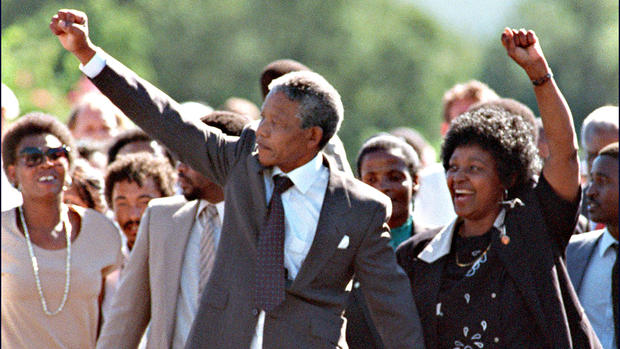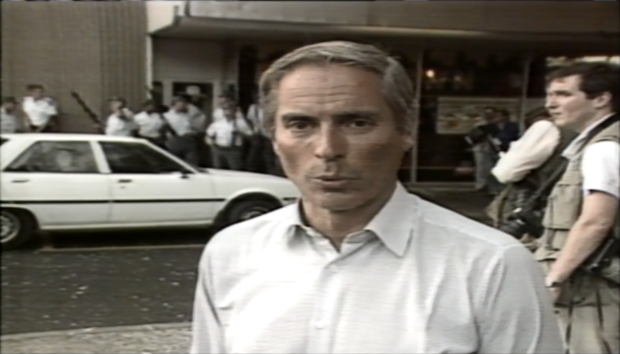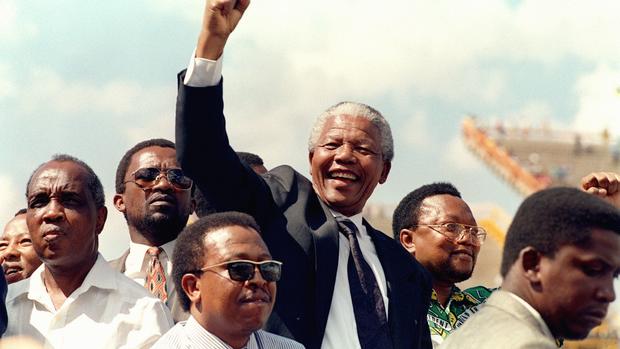Feb. 11th, 1990: Nelson Mandela released from prison
Nelson Mandela, leader of the South African movement to end apartheid, was released from prison on February 11th, 1990 -- 27 years after he was put behind bars.
After marching through the streets, he spoke at Cape Town's City Hall before thousands.
"I greet you all in the name of peace, democracy and freedom for all," Mandela said.
CBS News correspondent Bob Simon was there on the historic day of Mandela's release.
"After 27 years, his head high and his fist clenched, Nelson Mandela walked out of Victor Verster Prison like a chief of state flanked by his First Lady, and by the men who'd been hired to protect him," Simon reported.
The South African State Police provided security for Mandela, once the most wanted man in Africa, as he marched and waved to the thousands lining the streets.
Supporters flew the African National Congress (ANC) flag, which was illegal until 10 days before his release. Mandela joined the ANC, South Africa's oldest black political organization, in 1944.
"Hundreds of thousands had come to town, a throbbing crowd of relentless sun. They turned the central square, called Grand Parade, into a dance floor," Simon described. The crowd draped the ANC banner over the mayor's balcony of City Hall.
But the celebrations soon turned violent -- the dancing became stampeding, looting, and vandalism.
"The government insisted it would release Mandela into dignity, but by giving his organization less than 24 hours notice, it created conditions for chaos," explained Simon.
"Police moved in to restore order and opened fire on the people, indiscriminately and often. People replied by hurling bottles. Police opened fire again," Simon continued.
At least two people were reported dead and hundreds more were injured on that day. It wasn't until Mandela appeared on the steps of City Hall to address his supporters that the violence stopped.
Mandela became deputy national president of the ANC in 1952. He advocated for a peaceful movement against South Africa's institutionalized segregation and white supremacy, also known as apartheid.
But the massacre of non-violent demonstrators in 1960 led Mandela and others to organize a group to engage in guerrilla warfare against the government. He was arrested for treason in 1961, acquitted, and arrested again in 1962 on charges of illegally exiting the country. His conviction on that charge led to 5 years in prison.
In 1964, he was charged with sabotage and again convicted, then sentenced to life in prison. It wasn't until 1989, when F.W. de Klerk was elected president of South Africa, that apartheid began to be broken down.
De Klerk called for Mandela's release in 1990, and Nelson Mandela was elected president in 1994.


